
SOCIAL COGNITION
Scope & Guideline
Advancing understanding of human thought and interaction.
Introduction
Aims and Scopes
- Social Perception and Cognition:
The journal explores how individuals perceive and interpret social cues, including non-verbal signals, stereotypes, and implicit biases, and how these perceptions influence social judgments and behavior. - Emotional and Moral Judgments:
Research includes studies on how emotions affect moral reasoning and decision-making, examining the cognitive processes that underpin moral evaluations and the role of emotions in social interactions. - Group Dynamics and Intergroup Relations:
The journal addresses issues related to group identity, social comparison, and bias, investigating how group membership influences perceptions and behaviors toward in-group and out-group members. - Cultural and Contextual Influences on Cognition:
There is a strong focus on how cultural contexts and social environments shape cognitive processes, including social norms, values, and the impact of societal issues on individual cognition. - Methodological Innovations:
The journal encourages the use of diverse methodologies, including experimental designs, qualitative approaches, and interdisciplinary perspectives, to investigate complex social-cognitive phenomena.
Trending and Emerging
- Intersectionality in Social Cognition:
There is an increasing emphasis on intersectionality, examining how overlapping social identities (e.g., race, gender, and class) influence social perception and cognition. This trend highlights the complexity of social categories and their impact on individual experiences. - Impact of Social Media and Digital Contexts:
Research is increasingly focusing on the effects of social media on social cognition, including how online interactions shape perceptions, biases, and emotional responses. This reflects the relevance of digital contexts in contemporary social life. - Cognitive Mechanisms Underlying Empathy and Moral Judgment:
Emerging studies are delving into the cognitive processes that govern empathy and moral judgments, exploring how these mechanisms operate in diverse contexts and among different populations. - Dynamic and Contextualized Understanding of Bias:
There is a growing interest in understanding bias as a dynamic construct influenced by context, motivation, and social norms, moving beyond static definitions and exploring how biases manifest in varying social situations. - Applications of Social Cognition in Real-World Issues:
Research topics are increasingly oriented towards applying social cognition theories to address pressing social issues, such as discrimination, mental health, and public policy, emphasizing the relevance of cognitive research in societal contexts.
Declining or Waning
- Traditional Stereotype Research:
There seems to be a decline in studies focusing solely on traditional stereotypes without considering intersectionality or the dynamic nature of social identities. Recent papers are increasingly exploring more nuanced and complex interactions within social categorization. - Overly Simplistic Models of Social Judgment:
Research that relies on overly simplistic models of social judgment and decision-making appears to be waning, as scholars are moving toward more integrative and multifaceted approaches that account for emotional, cognitive, and contextual factors. - Static Views of Social Influence:
There is a noticeable reduction in studies that treat social influence as a static phenomenon. The current trend emphasizes the dynamic and reciprocal nature of social influence processes, integrating more about context and individual differences. - Focus on Individual Differences in Isolation:
Papers that examine individual differences in cognition without considering the broader social context or group dynamics are less common, indicating a shift toward understanding cognition as inherently social.
Similar Journals
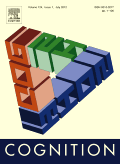
Cognition
Unraveling the Mysteries of the MindCognition, published by Elsevier, is a leading journal dedicated to the exploration and advancement of knowledge in the multifaceted fields of cognitive neuroscience, cognitive psychology, and linguistics. Since its inception in 1972, this prestigious journal has established itself as a prominent platform for disseminating innovative research and critical reviews, achieving a remarkable Q1 ranking across various relevant categories, including Cognitive Neuroscience and Developmental Psychology, as per the 2023 metrics. With a focus on providing insights that are vital for researchers, professionals, and students alike, Cognition boasts an impressive standing in the academic community, evidenced by its high Scopus rankings which place it in the top percentiles in several disciplines. Researchers interested in the cognitive processes underlying human thought, language, and behavior will find Cognition an invaluable resource that publishes cutting-edge findings and fosters interdisciplinary collaboration. Though it operates under a traditional access model, the breadth and depth of its content ensure it remains integral to advancing cognitive science.
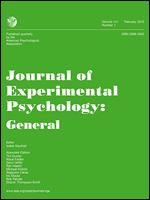
JOURNAL OF EXPERIMENTAL PSYCHOLOGY-GENERAL
Transforming Knowledge in Experimental PsychologyJOURNAL OF EXPERIMENTAL PSYCHOLOGY-GENERAL, published by the American Psychological Association, is a leading journal in the field of experimental and cognitive psychology. With an ISSN of 0096-3445 and a robust impact factor that reflects its significant contribution to research, this journal serves as a premier outlet for empirical studies that advance our understanding of psychological processes across development and cognition. Covering a wide array of topics from developmental neuroscience to general psychology, it is categorized in the Q1 quartile across multiple fields, making it a vital resource for researchers, professionals, and students alike. The journal has maintained a consistent publication record since its inception in 1975, continuously freeing insights that shape the future of psychology and related disciplines. With rigorous peer review and high standards of scholarly excellence, JOURNAL OF EXPERIMENTAL PSYCHOLOGY-GENERAL remains an essential platform for disseminating innovative psychological research.
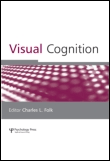
VISUAL COGNITION
Unraveling the Mysteries of Visual CognitionVISUAL COGNITION, published by Routledge Journals, Taylor & Francis Ltd, is a leading academic journal dedicated to the nuanced understanding of visual processing and cognition. Since its inception in 1994, the journal has become a pivotal resource for researchers and practitioners in fields including Cognitive Neuroscience and Psychology, having achieved a distinguished Q1 ranking in Arts and Humanities and impressive standings among its peers in experimental and cognitive psychology. With an impact factor reflecting its scholarly significance, VISUAL COGNITION serves as a forum for high-quality research articles that shed light on the cognitive aspects of visual perception. Although it operates under a subscription model, the journal remains committed to disseminating knowledge that inspires both established and emerging scholars alike. For those interested in the latest advancements in visual cognition, this journal promises a wealth of insights and rigorous scholarly dialogue.
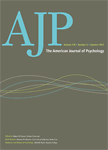
AMERICAN JOURNAL OF PSYCHOLOGY
Advancing the frontiers of psychological research since 1945.American Journal of Psychology, published by University of Illinois Press, has been a cornerstone of psychological research since its inception in 1945. With an ISSN of 0002-9556 and an E-ISSN of 1939-8298, this esteemed journal provides a platform for innovative research in various psychological disciplines. The journal is currently categorized within Q2 for Arts and Humanities (miscellaneous), highlighting its significant impact in the field, while also maintaining its presence in Q4 within Developmental and Educational Psychology, and Experimental and Cognitive Psychology categories. Although it does not provide Open Access options, it remains a vital resource for scholars, equipping them with a wealth of empirical studies, theoretical discussions, and methodological innovations essential for advancing psychological science. Researchers and educators can look to this journal as a reliable source for high-quality findings that contribute to both academic and practical applications in psychology.

PSYCHOLOGICAL INQUIRY
Illuminating Emerging Trends in Psychological SciencePSYCHOLOGICAL INQUIRY, published by Routledge Journals, Taylor & Francis Ltd, is a leading peer-reviewed journal dedicated to advancing the field of psychology. With an ISSN of 1047-840X and an E-ISSN of 1532-7965, this journal has established itself as a reputable source of innovative research and theoretical discussions since its inception in 1990. The journal has consistently maintained a prestigious Q1 ranking in the miscellaneous psychology category, reflecting its critical role in shaping contemporary psychological discourse. The journal covers a vast range of topics within psychology, making it a vital resource for researchers, professionals, and students seeking to explore emerging trends and findings. Although not open access, it ensures wide dissemination of significant research outputs through its rigorous editorial standards and high-quality publications. With a remarkable Scopus rank of #14 out of 216 in General Psychology, PSYCHOLOGICAL INQUIRY continues to influence practice, policy, and further research in the field.
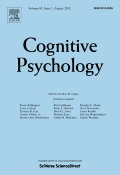
COGNITIVE PSYCHOLOGY
Leading the Way in Cognitive ResearchCOGNITIVE PSYCHOLOGY is a premier academic journal published by Academic Press Inc. Elsevier Science, specializing in the dynamic and evolving field of cognitive psychology. With a significant history spanning from 1970 to 2024, this journal has established itself as a critical resource for researchers and professionals alike, boasting a distinguished ranking in the Q1 category across multiple disciplines, including Experimental and Cognitive Psychology, Neuropsychology, and Artificial Intelligence. Its impact factor, reflective of its influence and reputation within the academic community, positions COGNITIVE PSYCHOLOGY as an essential platform for disseminating cutting-edge research and theoretical advancements. Although it is not open access, subscribers gain exclusive insights into the latest findings that drive the field forward. The journal's commitment to fostering innovative research makes it an indispensable tool for those dedicated to understanding the complexities of human cognition.

Journal of Theoretical Social Psychology
Connecting Ideas, Inspiring Change in Social PsychologyThe Journal of Theoretical Social Psychology, published by WILEY-HINDAWI, stands as a pivotal resource in the field of social psychology, boasting an impressive Q2 ranking in the 2023 Social Psychology category. Launched in 2017, this journal has rapidly established itself as a platform for innovative research that bridges theoretical frameworks and empirical studies, advancing our understanding of social behavior and cognition. With a current Scopus rank of 135 out of 310, placing it in the 56th percentile, it is recognized for its significant contributions to the discipline. The Journal is committed to open access, ensuring that critical insights and findings are accessible to a global audience of researchers, professionals, and students. As it converges towards its future in 2024, the journal aims to further its mission of fostering scholarly dialogue and promoting groundbreaking research in social psychology.

ANIMAL COGNITION
Innovative Insights into Non-Human IntelligenceANIMAL COGNITION is a prestigious academic journal dedicated to the exploration of cognitive processes in non-human animals, bridging the fields of ecology, evolution, behavior, and cognitive psychology. Published by Springer Heidelberg in Germany, this journal has established itself as a leading platform for innovative research since its inception in 1998, showcasing important findings that enhance our understanding of animal minds. With an impressive impact factor reflected in its Q2 rankings within both the Ecology, Evolution, Behavior, and Systematics and Experimental and Cognitive Psychology categories, ANIMAL COGNITION serves as an invaluable resource for researchers, professionals, and students alike. Although it currently does not offer open access, the journal's rigorous peer-review process ensures the highest quality of published research, making it a vital component of scholarly discourse in the study of animal cognition. As the journal continues to evolve into 2024 and beyond, it remains committed to advancing our knowledge while inspiring future generations of researchers in this fascinating field.
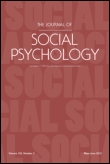
JOURNAL OF SOCIAL PSYCHOLOGY
Connecting theory with practice in social behavior.JOURNAL OF SOCIAL PSYCHOLOGY, established in 1930 and published by ROUTLEDGE JOURNALS, TAYLOR & FRANCIS LTD, is a revered platform in the field of social psychology, distinguished for its commitment to advancing the understanding of individual and group behavior. With an impressive Q2 ranking in the 2023 category for Social Psychology and a notable 67th percentile position in Scopus rankings, this journal serves as a critical resource for researchers, professionals, and students seeking to explore the latest empirical research, theoretical advancements, and application in social psychology. Although it does not provide open access options, the journal ensures high visibility and rigorous peer review processes, making it a trusted source for high-quality scholarly articles. As it converges its publication from 1930 to 2024, it continues to be at the forefront of scholarly dialogue, shaping the discipline's future.
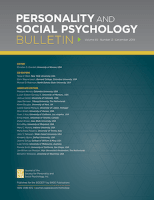
PERSONALITY AND SOCIAL PSYCHOLOGY BULLETIN
Exploring the intricate dance of personality and society.PERSONALITY AND SOCIAL PSYCHOLOGY BULLETIN is a premier journal dedicated to advancing the field of social psychology and personality research. Published by SAGE PUBLICATIONS INC and accessible since 1991, this influential journal delivers cutting-edge empirical studies, theoretical discussions, and critical reviews that are essential for scholars and practitioners alike. With an impressive impact factor and currently ranked in the top Q1 category in social psychology, the journal stands among the most respected resources within the discipline, boasting a Scopus rank of 21 out of 310, which places it in the 93rd percentile for psychology. Operating from its home in the United States at 2455 Teller Rd, Thousand Oaks, CA 91320, the PERSONALITY AND SOCIAL PSYCHOLOGY BULLETIN provides open access to its content, ensuring that critical research is widely available to the global academic community. As it continues to attract pioneering studies through 2024 and beyond, this journal remains a key platform for addressing the complex interactions between personality and social behavior, making it indispensable for anyone involved in psychological research.